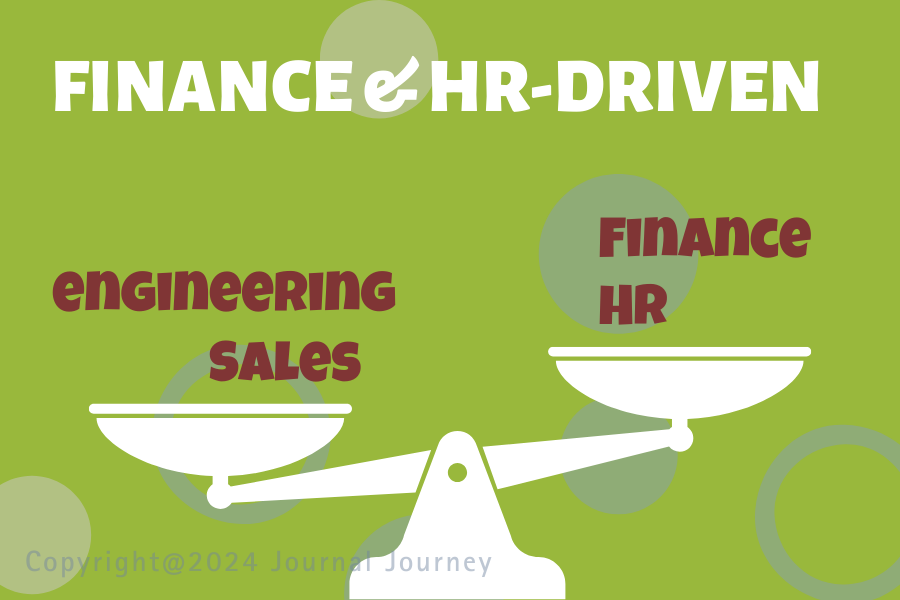Have you ever felt like your job security was hanging by a thread?

Corporate life can feel like a high-stakes game.
One day you’re climbing the ladder, the next you might be facing layoff roulette.
As someone who’s navigated the twists and turns of various industries for over two decades, I’ve seen firsthand how unpredictable layoffs can be.
But here’s the good news: You’re not powerless. By understanding the factors that influence layoffs and taking some proactive steps, you can significantly increase your chances of staying afloat.
In this guide, we’ll decode the layoff landscape and explore strategies to help you weather the storm.
Let’s get started!
When Layoffs Happen
Let’s review “when” that happens 1 by 1.
Rapid growth without expected performance

Rapid growth can be a double-edged sword.
While it’s exciting to see a company expanding, it can also be risky.
If a company hires too many people too quickly without generating enough revenue to support them, it can lead to financial strain.
When this happens, layoffs may become necessary to balance the books.
Imagine a startup tech company that develops a popular new app. The app quickly gains traction, and the company starts to grow rapidly. To keep up with demand, the company hires a large number of new employees to develop new features, improve customer support, and expand into new markets.
However, despite the app’s popularity, the company’s revenue growth may not be keeping pace with its increased expenses (like salaries, office space, and marketing). If the company continues to spend more than it earns, it may eventually face financial difficulties. To avoid bankruptcy or other serious consequences, the company may need to cut costs, which could include layoffs
When a business does well, some companies increase their staff rapidly, but rapid staff growth usually leads to layoffs. This is true for both startups and large companies.
I believe Amazon faced this case.
End of the fiscal/Calendar year

Reduce expenses to improve the balance sheet and make revenues appear higher.
The term “balance sheet” is a complicated financial term that makes you hate it, doesn’t it? Let’s put it another way.
There are two things you need to do to maximize your sales:
One, maximize your sales, and two, minimize expenses.
Let me give you a concrete example.
Imagine you’re running a lemonade stand.
You sell each cup for $1. But it costs you 50 cents to make each cup (for the lemons, sugar, and water). So, your profit is $0.50 per cup.
Now, let’s say you want to increase your profit.
You can do this in two ways:
- Increase your sales: Sell more cups of lemonade, or add higher price for a cup.
- Reduce your costs: Find ways to make each cup cheaper (like buying lemons in bulk).
Most businesses try to do both. But sometimes, when things get tough, they need to focus on cutting costs. Layoffs are one way to do this.
Companies often face increased pressure to meet financial targets at the end of the fiscal year. This can lead to a phenomenon known as “window dressing,” where companies take actions to make their financial statements look better than they actually are. One way to do this is by reducing expenses, which can include layoffs.
By laying off employees near the end of the year, companies can reduce their labor costs, which can improve their bottom line and make their financial performance appear more favorable.
Management changes

New leadership often leads to restructuring.
This is common.
When leadership has changed, they often prefers new business strategy.
Why?
Because they prefer to do their own way, and the company is also expecting them to change. That is why they got hired.
1 more thing, that will shine their resume at the end, which will lead to their future higher position.
They want to “make their mark”
Post-acquisition

Mergers usually result in redundant roles that need to be trimmed.
This is another simple reason.
If two companies merge, there will be overlap.
Let me explain it very simply.
Every company has a human resources department, a finance department, a sales department, a service department, etc.
When two companies merge, there are two human resources departments, two finance departments, and so on.
Duplicate functions are a waste of resources, and companies will lay off workers.
This is similar to the previous section, where it is important to minimize expenses in order to make a large profit.
Financially-driven companies

Every company has its own unique power dynamic. Some are sales-driven, while others are engineering-driven. Understanding this balance is crucial for your job security.
Based on my experience, companies where HR and Finance hold significant sway are more prone to layoffs. This is because these departments often have a direct impact on workforce decisions, including:
- Cost Cutting: Finance teams are always looking for ways to reduce expenses, and layoffs can be a quick and effective way to do so.
- Workforce Optimization: HR departments are responsible for ensuring the company has the right people in the right places. This can sometimes lead to redundancies and layoffs.
- Budget Allocation: Both HR and Finance play a role in determining how much of the company’s budget goes towards employee salaries and benefits.
So, keep an eye on the power balance within your company. If HR and Finance are gaining influence, be prepared for potential layoffs.
Companies Prone to Layoffs

Startups:
Limited retained earnings cannot sustain poor performance for long.
Emerging companies have less room for retained earnings than medium and large companies.
This is because emerging companies are often under Hand-to-mouth operation.
Large corporations:
Always have excess staff due to the 20/60/20 rule. The bottom 20 are always burden for the corporations.
So now you mean that layoffs are inevitable in any company, right?
Right. Layoffs are external force that you cannot control.
so now lets got see who’s “likely” get laid off.You may be able to prevent yourself from becoming a layoff target.
Who’s Less Likely to Be Laid Off

Low salary employees:
Those at the lower end of the pay scale. As I shared many times already, labor cost is pretty expensive for corporation. If they pay minimum salary, then they win. So they prefer to keep low salary employees.
Diverse employees:
Companies may seek diversity and avoid firing minority employees.
Large companies, in particular, value diversity because social reputation is also important.
Well-connected employees:
The “teacher’s pet” type employee !
The employee who is liked by the boss stays.
This may sound unfair, but I believe this is the reality.
Corporate life is very political.
Let me be clear:
building a strong relationship with your boss, while beneficial, does NOT replace the need to perform well and contribute to the success of the company. Your own performance is most important, and you need to build strong relationships on top of that.
Who’s Likely to Be Laid Off

Now let’s see the opposite. Who get purged…
High salary employees:
Higher salary compared to market rate could lead to the potential layoff.
I’m sure you negotiate the higher salary upon job interview, but just to remember, that will be the trigger to your layoff.
Underperformers:
Those who fail to deliver results. Very simple.
You need to perform well. In order to do it, I put some key factors in this article (The Secret to Career Advancement: Focus on What Matters)that you can refer.
Passive workers:
Only doing the bare minimum as described in their job description is considered as passive workers.
Corporation can replace with others easily and no harm to let you go.
Poor communicators:
A person who speaks ill of a colleague or company. This is the first to be eliminated. This is because this type of person has a negative impact on other colleagues. The same goes for people who immediately try to dismiss new ideas when they come up.
Based on my experience, whenever I felt like “oh wow, this person is something wrong as personality” , the person got laid off and gone.
My Tips
I’m still learning every day, and my experience is just 0.0000001% out of all the corporation case out there.
but my 2 cents are below:
- Understand your business: Be aware of financial reports and sales performance.
- Stay alert and proactive: Pursue interesting opportunities within the company. Opportunities are always there – inside and outside of your current workplace.
- Build a strong internal network: it can warn of layoffs. In the past, I have been advised by my immediate supervisor that layoffs would be implemented in the near future and that I should look for another position. I have seen this and similar experiences happen many times to employees other than myself.
- Learn transferable skills: Focus on skills that are valuable across different companies such as meeting facilitating skills, community management skills, or direct sales skills. In other words, do not focus on too much on the skills that is effective only within that corporation such as skills to extract the data from system A, or how to order the service by using systemB, or any corporation specific process.
- Build external relationships: Network beyond your current company.
As a result of my attention to the above, I have never been the target of a layoff, although there have been more than 10 layoffs in my department and operations. On one of those occasions, I heard the signs of layoffs from my supervisor and changed jobs beforehand.
Conclusion
Remember, layoffs are a part of corporate life, but they don’t have to define your career. By understanding the factors that influence layoff decisions and taking proactive steps to increase your value to your company, you can improve your chances of job security.
So, stay informed, network strategically, develop transferable skills, and maintain a positive attitude. With the right approach, you can not only survive layoffs but also thrive in your career.
Other Resources
You can check other contents for your productivity and coporation tips.



